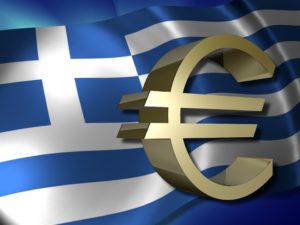Financial Services
Greek update
The Emergency Liquidity Assistance funding that is keeping the Greek banks alive will end tomorrow and led to the huge cash withdrawals over the weekend while the Syriza government try to limit the damage with capital controls. No more than €60 per person from an ATM and over 500 of the 7,000 ATM’s now without cash. Tourists with foreign cards can access unlimited cash still.
A referendum has been called, the details of which are a bit sketchy. Basically, the Greek people are being asked to vote on whether they are willing to accept the terms laid down by the Troika or not. If they accept with a large majority, a new government will likely be formed to execute the implementation and Syriza (and Tsipras) are probably toast. If they do not accept, then it is lights out for Greece and they are on their own with no currency, no banking system and very quickly no economy. It is less clear cut if there is a small majority – Syriza and Tsipras probably still go or potentially in coalition but the execution risk around the implementation plan is higher.
A rational person would say common sense will prevail here and a large majority will vote to accept a plan (to increase VAT, higher the retirement age, cut public spending etc.) which the recent polls indicate will happen (c.47% for, 33% against and balance undecided). However, this has not always been a rational debate to date so there is always a chance we get a “no” in the referendum. It is not helpful that Tsipras and his government are out of jobs in almost every scenario so there is a slight question mark as to whose interests are being served by the current government.
The first deadline payment of €1.6bn passing tomorrow looks to be unavoidable. The next is the referendum next Sunday. Expect lots of noise and volatility in markets guessing the outcome, especially equity markets, which have reacted negatively to the news over the weekend. That said, markets are still higher today than they were before last weeks’ “good news”. So for the time being, it is market volatility rather than falling markets making the news. Bond markets, predictably, have seen German bond yields fall, peripheral yields rise and the Euro weaken by nearly 2% to c. $1.09.
Source: Irish Life Investment Managers
29/06/2015

